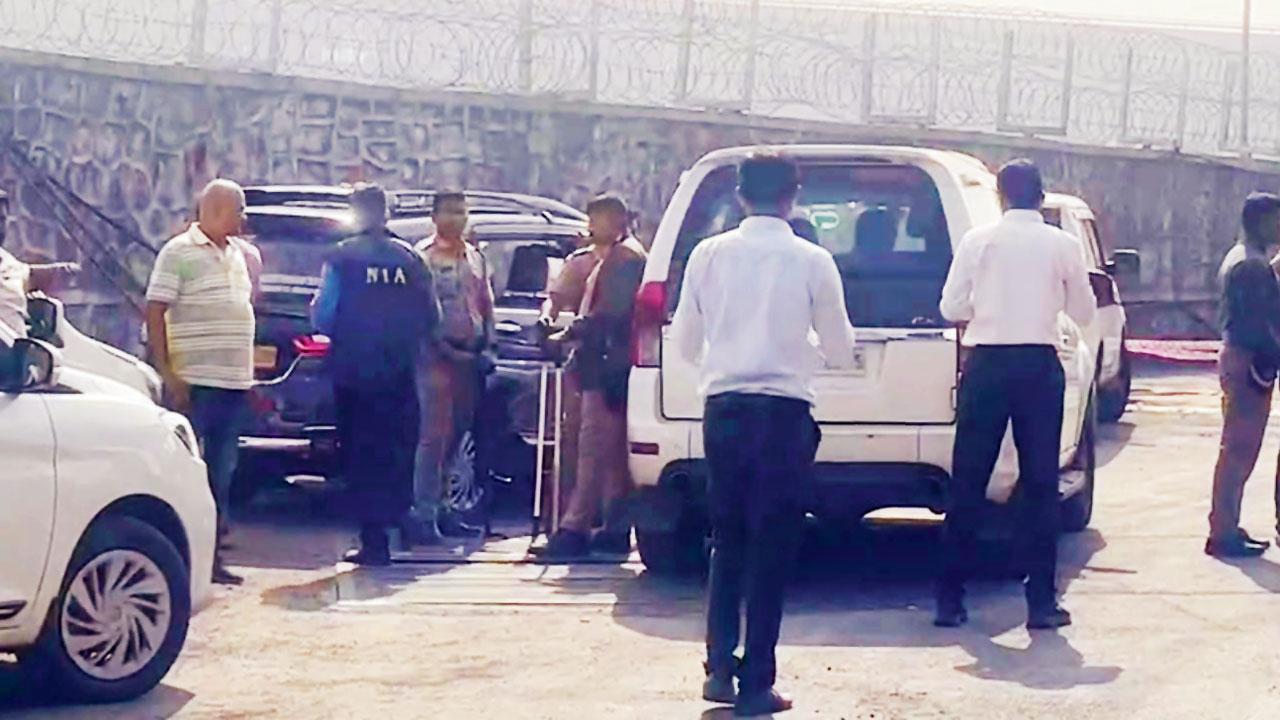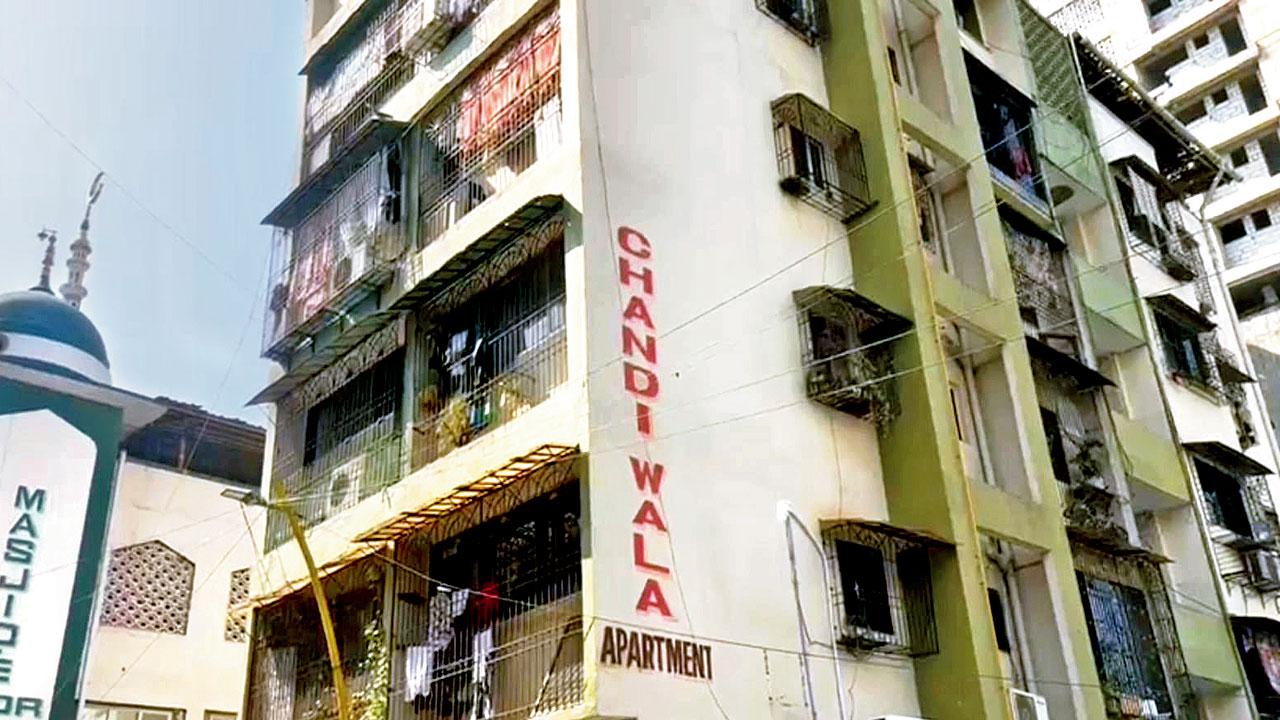NIA names former SIMI member Saquib Nachan, formerly convicted in serial blasts, as the ‘mastermind’ of IS module

NIA and police personnel examine a shipment at the Air Cargo section of the Chhatrapati Shivaji Maharaj International Airport as part of Saturday’s crackdown
In a significant follow-up to its sweep against alleged operatives of the Islamic State (IS) earlier this year, the National Investigation Agency (NIA) on Saturday arrested 15 alleged IS operatives in simultaneous raids across 44 locations in Maharashtra and Karnataka. Significantly, the arrested accused include Saquib Nachan, earlier convicted in connection with serial blasts in Mumbai in 2002 and 2003.
Formerly known as the Islamic State of Iraq and Syria (ISIS), the transnational Salafi jihadist organisation is now known as the IS or as Da’ish, its acronym as per its name in Arabic. Its missions include jihad—holy war against infidels, and establishment of the Khalifat, a proposed Universal Caliphate to rule the world that forms the basis of the concept of jihad.
Early on Saturday morning, NIA teams descended on multiple locations in Padgha-Borivli, Thane, Mira Road, and Pune in Maharashtra, as well as Bengaluru in Karnataka. The accused were arrested on charges of promoting terror and engaging in terrorist activities to further the IS agenda in India. Saquib, who is among the 15 accused arrested on Saturday, is now being alleged to be the mastermind of this module.

One of the buildings in Thane raided by the NIA on Saturday. Pic/Rajesh Gupta
“The raids yielded substantial findings, including unaccounted cash, firearms, sharp-edged weapons, incriminating documents, smartphones, and other digital devices. This operation is part of NIA’s ongoing efforts to thwart ISIS’s attempts to carry out violent acts of terror and jeopardise innocent lives,” said a statement issued by the NIA on Saturday.
Sources added that Saturday’s crackdown was the result of interrogation of 12 accused who were arrested from June to August this year on similar charges. The NIA had in November filed a chargesheet against seven of these accused, including Saquib’s son Shamil. Saquib was among the key members of the now banned Students’ Islamic Movement of India (SIMI), which later crystallised into the terrorist outfit Indian Mujahideen.
The NIA’s chargesheet asserts that the accused arrested from Kondhwa in Pune and Padgha in Thane— the latter being the Nachans’ hometown and the core of their sphere of influence— were plotting terrorist activities in India. They had sworn their allegiance to the IS in a ritual known as the Bay’ah, had assembled IEDs and had even tested them out in the forest areas adjoining Padgha.
“Subsequent investigations have revealed that Padgha had been declared as a ‘liberated zone’ and was now referred to as Al-Sham. This was the hotbed of activity, where other impressionable youth were being invited to relocate, so that they could be radicalised as well,” said an NIA officer.
Al-Sham is a reference to ash-sham, the Arabic name for Greater Syria. The NIA had earlier stated that Kondhwa, too, had become a hotbed for operative of the IS in Pune, and was also being referred to as Al-Sham. The NIA had also arrested Aakif Nachan, a close associate of the Nachan family. Both Aakif and Shamil were allegedly assisting the Kondhwa module after being approached by its alleged head, Zulfikar Ali.
Padgha, where Saquib grew up, found itself under intense scrutiny after the blasts in Mulund and Mumbai Central in 2002 and 2003. Saquib is widely known for his popularity and dedicated following in the village. So much so, that when a Mumbai Crime Branch team went to arrest him in 2003, a massive mob surrounded the police van, shouting slogans and war cries, and the police had to return empty handed.
He was only arrested later that year when a bigger and better-armed team went back to arrest him. He spent a decade in jail after he was convicted in the 2002-2003 blasts. Sources have also said that Kalyan resident Areeb Majeed has also been summoned for inquiries in connection with this investigation. Majeed had fled India in 2014 along with three others to join the IS in Syria, and was brought back to India in 2015 after a prolonged diplomatic process.
 Subscribe today by clicking the link and stay updated with the latest news!" Click here!
Subscribe today by clicking the link and stay updated with the latest news!" Click here!










